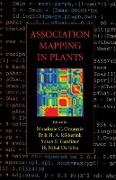Association Mapping in Plants
BücherAngebote / Angebote:
For the past decade, there has been success in using conventional map-based strategies in identification and cloning of quantitative trait loci (QTL) in model plant species including tomato and Arabidopsis. These quantitative traits are generally the products of many loci with varying degrees of effect upon the observed phenotypes. Recently, a new approach to genetic mapping has emerged called association mapping. This new technique takes into account the thousands of genes to evaluate for QTL effect and is a more efficient approach that does not require generation of segregating populations/large numbers of progeny. As it can utilize all of the historic recombination events in a diverse population of individuals it can generate higher resolution genetic maps and, is needed to complement current map based cloning methods.
Association Mapping in Plants provides both basic and advanced understanding of association mapping and an awareness of population genomics tools to facilitate mapping and identification of the underlying causes of quantitative trait variation in plants. It acts as a useful review of the marker technology, the statistical methodology, and the progress to date. It also offers guides to the use of single nucleotide polymorphisms (SNPs) in association studies.
This book will appeal to all those with an interest in plant genetics, plant breeding, and plant genomics.
About the Editors:
Dr. Nnadozie C. Oraguzie is a Senior Scientist in Genetics at the Horticulture and Food Research Institute of New Zealand Ltd (HortResearch).
Dr. Erik H. A. Rikkerink is a Science Leader at HortResearch, New Zealand.
Dr. Susan E. Gardiner is a Principal Scientist and leader of the Gene Mapping research team at HortResearch, New Zealand.
Dr. H. Nihal De Silva is a Senior Scientist of Biometrics at HortResearch, New Zealand.
Lieferbar in ca. 20-45 Arbeitstagen
